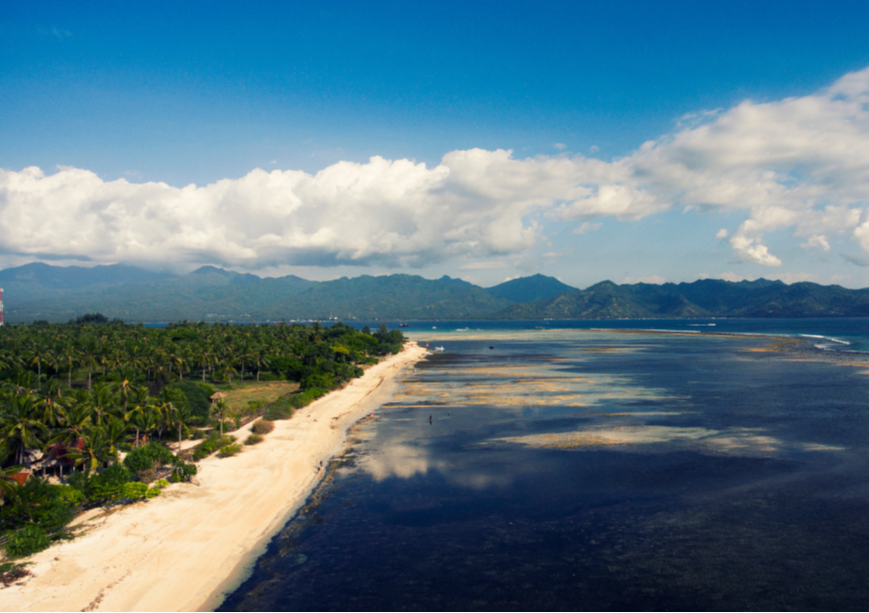
In the vast expanse of the Indo-Pacific region, Small Island Developing States (SIDS) in the Indian and Pacific oceans often find themselves relegated to the sidelines, perceived as mere dots on the map overshadowed by larger geopolitical players and their interests. However, these seemingly diminutive nations are reshaping this narrative, asserting themselves as influential actors on the global stage, transforming from mere ‘small islands in a far sea’ to a powerful collective ‘sea of islands’. SIDs are crafting their own narrative as proactive agents of change, advocating for their rights and interests globally. And at the heart of this agenda lies the pressing issue of climate change.
These seemingly diminutive nations are reshaping this narrative, asserting themselves as influential actors on the global stage, transforming from mere ‘small islands in a far sea’ to a powerful collective 'sea of islands'.
SIDS stand at the forefront of climate change impacts, their small landmass and population are disproportionately vulnerable to adverse effects such as rising sea levels, coastal erosion and increased frequency of natural disasters. The consequences extend beyond economic implications to existential threats to their societies and cultures. SIDs are taking concrete steps to address climate change and urging the global community into action.
A testament to this resolve is seen in the groundbreaking legal initiatives undertaken by SIDS. In October 2022, Vanuatu, representing a coalition of states, submitted a draft resolution requesting an advisory opinion from the International Court of Justice (ICJ) on the obligations of member states regarding climate change. Subsequently, in November 2022, the Commission of Small Island States (COSIS) formally sought an advisory opinion from the International Tribunal for the Law of the Sea (ITLOS) concerning sea level rise and climate change under the United Nations Convention on the Law of the Sea (UNCLOS). These cases are significant not only for their departure from conventional issues brought by other states before international courts but also for exemplifying the SIDS’ endeavours to push climate resilience in global political discourse.
While these legal efforts are commendable, SIDS’ efforts to combat climate change go beyond the courtrooms. They are also calling for a shift in the climate finance landscape, advocating for a shift in the disbursal of climate finance as well as the mechanisms through which it is disbursed. Existing financial instruments fail to adequately tackle their challenges, exposing them to the impacts of climate change. Thus, there is a pressing need to develop financial tools tailored to their individual circumstances.
How is the existing financial landscape unfitted to its task?
From a bird’s eye-view, the existing landscape of climate finance is not fit because it is heavily fragmented and overly complex. Specifically, there are two main issues.
First, the financial instruments in place are not well-suited to the needs of the SIDS. Concessional financing, particularly through Official Development Assistance (ODA), exemplifies this issue. Although the SIDS’ vulnerabilities are acknowledged, accessing concessional finance remains a hurdle due to eligibility criteria based on conventional prosperity metrics such as gross national income per capita. These metrics, often high for SIDS, ignore heightened exposure to external shocks, their limited tax bases, and the high costs of development projects, thus perpetuating structural deficiencies. Initiatives advocating for reform, notably highlighted at the 15th session of the United Nations Conference on Trade and Development, emphasise the need to revise these eligibility criteria to prioritise vulnerability indices over traditional metrics of prosperity.
The debt-financing regime further exacerbates the problem. With approximately 94 percent of climate finance structured as return-seeking, where investments are made through loans or non-concessional grants—which means that the funders expect financial returns on their investments—SIDS find their fiscal flexibility constrained. This perpetuates high debt burdens and traps SIDS in a cycle of financial strain, hindering sustainable development efforts.
Secondly, the distribution of climate funds does not align with the needs of SIDS. Adaptation finance is crucial for bolstering SIDS’ resilience. However, the current trend in the allocation of climate finance disproportionately favours mitigation endeavours over essential adaptation measures. While there is a gradual increase in adaptation finance overall, a significant portion remains directed toward middle-income countries, neglecting the most vulnerable nations, which include SIDS.
Moreover, the prevailing discourse on compensation for climate-induced loss and damage inadequately addresses SIDS’ unique vulnerabilities. Existing methodologies for assessing loss and damage largely overlook non-economic ramifications, such as loss of cultural heritage and identity. This oversight relegates these communities to a state akin to a ‘modern-day Atlantis’, staring at their impending doom. Take, for instance, the Falepili Union Treaty 2023, hailed as the first bilateral agreement on climate mobility. While cautiously welcomed, critics argue that this one-way ticket fails to consider the loss of culture, identity and heritage, aspects that defy quantification. By perpetuating a doomsday narrative, where residents of SIDS have no option but to leave their homelands and migrate to other nations, the Treaty largely fails to cater to the needs of those who wish to remain in their ancestral lands, deflecting their need for finance in making their homelands more resilient. SIDS view loss and damage beyond matters of mere mobility, highlighting a disconnect between current mechanisms and their actual needs.
The call for action from SIDS
Clearly, the complexity of challenges faced by SIDS demands a departure from conventional financial instruments towards holistic, context-sensitive approaches. But what is the priority of these island states in talks about climate finance?
The complexity of challenges faced by SIDS demands a departure from conventional financial instruments towards holistic, context-sensitive approaches.
First and foremost is the need for a scale-up in climate finance. Despite being disproportionately affected by climate change and contributing less than 1 percent to global emissions, they had access to a mere US$1.5 billion out of the US$100 billion pledged in 2019. This disparity underscores the urgent need for increased and more accessible climate finance.
Further, there is a pressing need to boost resilience funding, particularly focusing on funding towards adaptation and disaster risk reduction. This is especially crucial for island states, where adaptation costs often exceed their economic size. For instance, from 1970 to 2020, SIDS incurred losses of US$ 153 billion due to weather-, climate- and water-related hazards, a significant figure given their average GDP of US$ 13.7 billion. Given their limited fiscal space and restricted access to debt markets, climate-proofing infrastructure will require grants that exceed their GDP. However, SIDS are currently receiving much lower levels of resilience finance compared to other states. This reality underscores the need for increased funding to support their efforts in constructing resilient communities.
The SIDS are also seeking to expand the fiscal space for investment in renewable energy projects. While adaptation finance is a top priority, these states are recognising the need to shift their dependence on imported fossil fuels and tap into their geographical advantage to strengthen renewable energy. However, SIDS face the twin challenge of high costs and lack of suitable financing for these projects. Without access to adequate finance, they are struggling to unlock their potential in this endeavour.
The SIDS are also seeking to expand the fiscal space for investment in renewable energy projects.
Conclusion
Having weathered storms and disasters, these nations possess the resilience to confront whatever challenges lie ahead. However, they cannot do it alone. They require a supportive governance framework to bolster their efforts, with financial reforms playing a pivotal role. This implies rethinking existing frameworks to prioritise vulnerability indices, increase resilience funding, and ensure that climate finance mechanisms align with the perspectives and needs of SIDS. Despite contributing minimally to global emissions, SIDS are disproportionately vulnerable to drastic climate change impacts. Consequently, larger nations must support SIDS not merely as a necessity but because they owe it to them.
Vikrom Mathur is a Senior Fellow at the Observer Research Foundation.
The views expressed above belong to the author(s). ORF research and analyses now available on Telegram! Click here to access our curated content — blogs, longforms and interviews.




 PREV
PREV

.png)
.png)